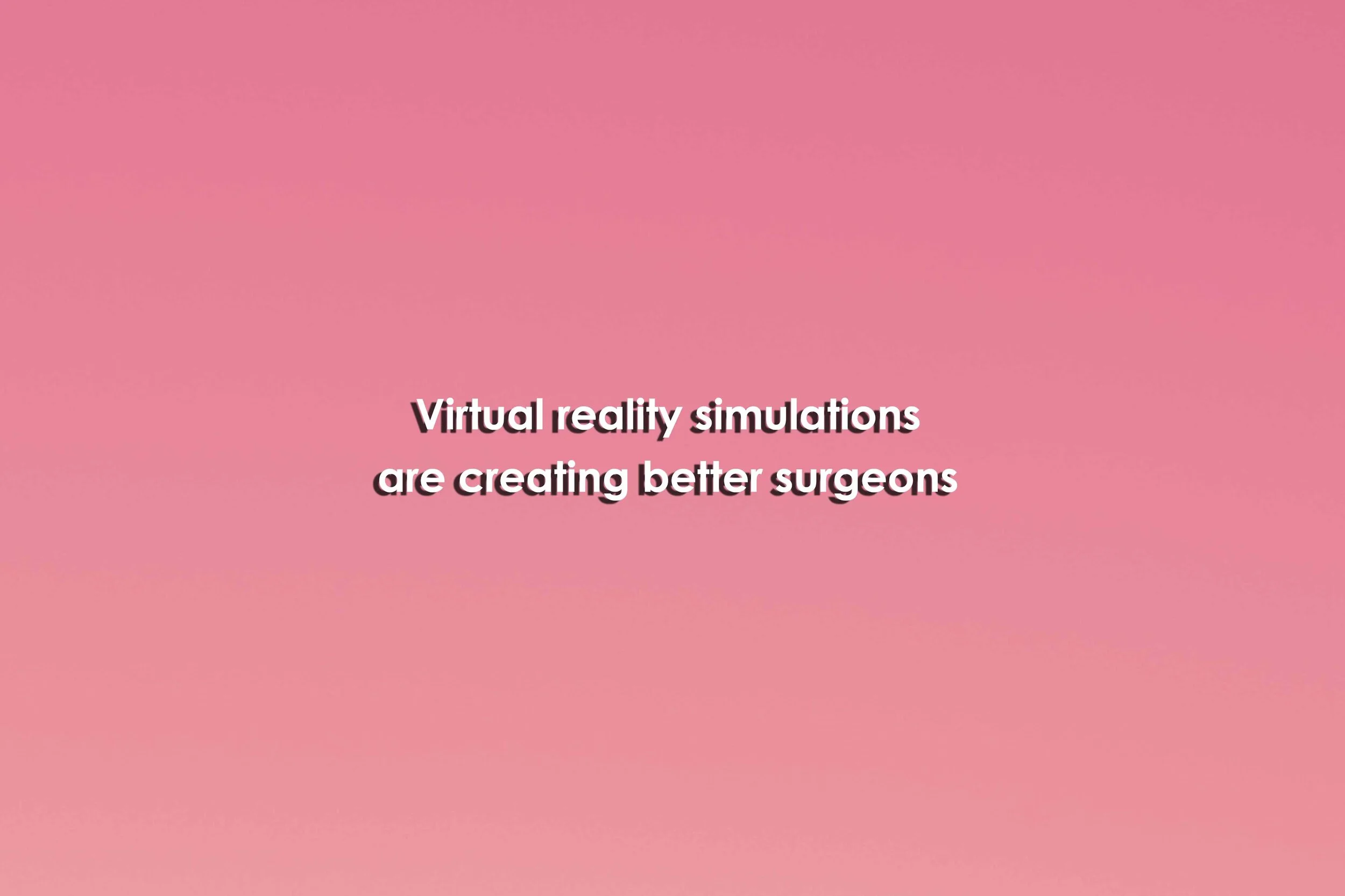Virtual reality simulations are creating better surgeons
Virtual reality simulations are creating better surgeons
Virtual reality simulations are creating better surgeons
By Jacob Andra
January 18, 2021
Summary
Virtual reality programs allow medical students to practice surgeries.
At the University of Utah's Spencer S. Eccles Health Sciences Library, "We are currently doing a number of really interesting projects ," says Benjamin Engel, a U of U virtual reality programmer who runs the day-to-day operations at EHSL. His projects include a trauma lead simulation where a patient comes in with a number of issues into the trauma bay and the participant plays the role of the head doctor who must direct everyone to save the patient.
According to "Virtual reality in healthcare" by J Mazurek, et al, virtual reality is "An image of artificial reality created entirely in three-dimensional graphics" In other words, a computer simulation.
Practical virtual reality technologies were originally developed, not as an escapist technology, but to serve a very practical purpose in the aerospace industry.
"The number one reason 3D photos even exist," Jin says, "Is because of future uses for VR and AR." The virtual reality industry, he says, has difficulty creating fast and easy content for virtual simulations―3D photos were created to fill that gap.
Augmented reality programs give surgeons access to more data.
If virtual reality is divorced from one's surroundings, augmented reality provides a watered-down variation where one interacts with the real environment with mediation from virtual elements interpreted via a digital device such as a smartphone.
According to its 2019 "Research: How Virtual Reality Can Help Train Surgeons" Harvard Business Review states that surgeons may "Travel to a one- to two-day training workshop with the medical device company," but then "It could be four to six months from the time surgeons train on a procedure to when they perform it on a patient."
ADVERTISEMENT. Augmented and virtual reality tech could allow surgeons to practice with a new device and refresh their knowledge as many times as needed.
In the study, 20 participants were randomly assigned to "a traditionally trained group" and a virtual reality group that utilized the Osso VR platform.
Reference
Andra, J. (2021, January 18). Virtual reality simulations are creating better surgeons. Retrieved March 06, 2021, from https://www.utahbusiness.com/virtual-reality-is-creating-better-surgeons/


